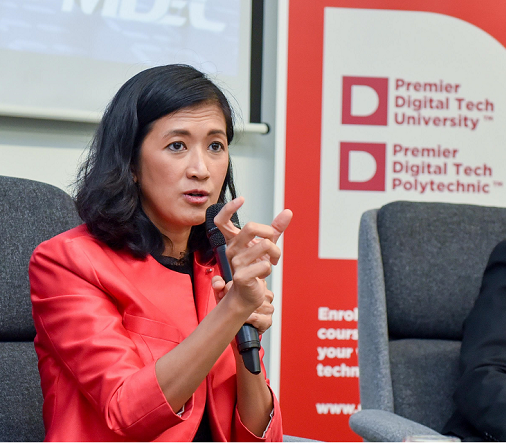Malaysia rises to 26th spot in Global Talent Competitiveness Index 2020
By Digital News Asia April 17, 2020
- Malaysia rose from 28th place last year to 26th, its highest position yet
- Scores strongly in the Enable, Attract, and Vocational & Technical Skills pillars
.png)
Efforts to drive Malaysia’s digital talent development and workforce upskilling has received global recognition.
In the recently-released Global Talent Competitiveness Index 2020 (GTCI 2020), a report by INSEAD University, Google and Adecco produced to track and measure talent performances across 88 countries, Malaysia rose from to 26th place from 28th in last year’s ranking. This is the country’s highest ever ranking.
Malaysia scored strongly in the Enable, Attract, and Vocational and Technical Skills pillars. Besides that, it improved its ranking in the Retain pillar.
Malaysia also rank 6th globally for Employability, besides placing high in two sub-pillars relating to talent enablement – namely Business and Labour Landscape (13th) and Market Landscape (22nd).
“These achievements clearly reinforce the fact that Malaysia is on the right track to develop industry-ready digital talent. We must continue to level up our workforce and provide a conducive environment for digital innovation and creativity to thrive,” says Surina Shukri (pic), chief executive officer, Malaysia Digital Economy Corporation (MDEC).
Shukri (pic), chief executive officer, Malaysia Digital Economy Corporation (MDEC).
“More importantly, businesses now need such talents as entire industries must be digitalised as the global economy explores a new norm for a post-COVID-19 period. This is where our digital talent development, digital adoption and global growth accelerator programmes for high potential local companies will play a key role in upskilling our talents to the next level,” she adds.
It should also be noted that in the new GTCI 2020 ranking, Malaysia is the only country from the Upper-Middle income bracket that is in the top quartile of the report, outperforming high-income countries in the list such as China, South Korea, Spain and Portugal.
"We want to make digital skills accessible to all Malaysians; and through our Grow with Google umbrella program we are helping to create economic opportunity for anyone interested to upskill themselves," says Google Malaysia country manager Marc Woo.
"Whether it's through our free Mahir Digital bersama Google in-person training or self-study by downloading our free Primer app, there are many avenues for Malaysians to make a future for themselves and become sought after talent.”
There are some findings in the GTCI that is worth noting. The top rankings is still dominated by Europe, and there are only seven non-European countries in the top 20 of the list: the United States (2nd place), Singapore (3rd), Australia (10th), Canada (13th), New Zealand (16th), Japan (19th) and Israel (20th).
Switzerland is ranked first globally. As the report states, current GTCI 2020 champions are similar with the previous editions in that they are small high-income economies that are either landlocked, island or quasi-island economies. Besides Switzerland and Singapore, other of such champions include Luxembourg (8th), Iceland (14th) and Austria (17th).
“Such economies have developed relatively open socio-economic policies in which talent growth and management are central priorities,” the report states.
Related stories:


